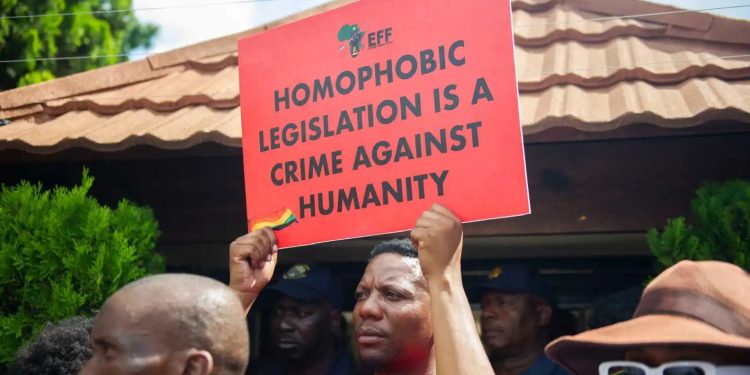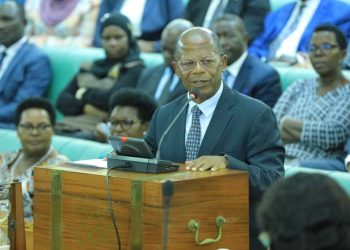Ugandan activists have urged foreign donors to impose sanctions on individuals responsible for human rights abuses following President Yoweri Museveni’s signing of an anti-gay law that is considered one of the harshest in the world.
Despite warnings that approving the highly criticized legislation would strain Uganda’s relations with international partners and aid donors, including the United States, President Museveni went ahead with signing the bill.
The law includes severe measures, such as the death penalty for “aggravated homosexuality” in certain cases, although Uganda has not carried out capital punishment in many years.
The enactment of this law has sparked widespread outcry and calls for a strong response from Uganda’s diplomatic and financial supporters.
A coalition of Ugandan activist groups issued a statement, urging stakeholders such as the US and the EU to implement sanctions against individuals involved in human rights abuses.
“This is a key time for stakeholders, such as the US and the EU, to move forward with sanctions against Ugandans implicated in human rights abuses,” a coalition of Ugandan activist groups said in a statement late Monday.
The activists argued that this “dangerous and discriminatory” law would further restrict the space for civil society under President Museveni’s increasingly authoritarian rule since he came to power in 1986.
“Creating new crimes like these are a well-know way to engineer a legal basis to throw those with divergent views behind bars,” said Clare Byarugaba from Chapter Four Uganda, one of the groups calling for sanctions.
She further stated that the law would also discourage LGBTQ individuals from seeking HIV treatment, thus devastating the fight against the disease in Uganda.
Ugandan lawmakers have remained steadfast in the face of Western criticism of the bill, even if it meant potential cuts in foreign aid or other consequences.
US President Joe Biden denounced the law as a violation of universal human rights and threatened to reduce aid and investments unless the bill is repealed.
The US administration is currently evaluating the implications of the law on various aspects of its engagement with Uganda, including AIDS relief services, assistance, and investments.
EU foreign policy chief Josep Borrell emphasized that the Ugandan government has an obligation to uphold the rights of all citizens and that failure to do so will strain relationships with international partners.
In 2014, Uganda faced substantial aid cuts from donors after Museveni approved a previous bill seeking to impose life imprisonment for same-sex relations, although it was later overturned.
Several countries, including the Netherlands, Denmark, and Norway, redirected or froze funding in response.
While the latest anti-gay legislation has faced criticism internationally, it has received broad support within Uganda, with lawmakers defending the measures as a necessary defense against perceived Western immorality.
Although homosexuality has been criminalized since colonial times, no convictions for consensual same-sex activity have been made in Uganda since gaining independence from Britain in 1962.


































































